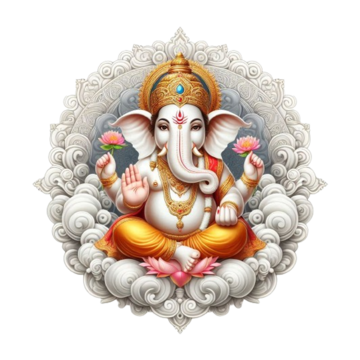Marble murtis, or sacred statues, hold a significant place in religious practices and rituals across various cultures and faith traditions. Crafted with meticulous care and devotion, these exquisite works of art serve as physical representations of divine beings, revered saints, and spiritual principles. From Hinduism to Christianity, Buddhism to Islam, marble murtis play a vital role in fostering devotion, facilitating worship, and deepening spiritual connections. In this article, we explore the multifaceted role of marble murtis in religious practices and rituals, examining their significance, symbolism, and impact on devotees.
Symbolism and Spiritual Significance:
Marble murtis are imbued with profound symbolism and spiritual significance, representing the divine presence and embodying sacred attributes and qualities. In Hinduism, for example, marble murtis of deities such as Lord Shiva, Lord Krishna, and Goddess Durga are revered as manifestations of divine power, grace, and compassion. Each deity is depicted with distinctive iconographic features and attributes that symbolize their unique qualities and divine attributes.
The choice of marble as the medium for crafting murtis holds symbolic importance as well. Marble, with its pristine white color and lustrous appearance, symbolizes purity, clarity, and spiritual illumination. It is believed to be an auspicious material for sculpting sacred images, as it reflects the divine radiance and transcendental beauty of the divine realm.
Facilitating Worship and Devotion:
Marble murtis serve as focal points for worship and devotion, providing devotees with tangible representations of the divine that they can venerate and adore. Whether installed in temples, shrines, or homes, these sacred statues serve as conduits for spiritual communion and divine grace. Devotees offer prayers, perform rituals, and adorn the murtis with offerings of flowers, incense, and sacred chants, expressing their love, reverence, and devotion to the divine.
The act of worshiping marble murtis fosters a deep sense of connection and intimacy between the devotee and the divine, allowing individuals to cultivate a personal relationship with the deity and experience a profound sense of spiritual fulfillment. Through the rituals of puja (worship) and darshan (sacred viewing), devotees seek the blessings and guidance of the divine, seeking solace, strength, and spiritual upliftment in their lives.
Promoting Spiritual Awareness and Enlightenment:
Marble murtis serve as powerful tools for promoting spiritual awareness and enlightenment, inspiring devotees to contemplate the deeper mysteries of existence and pursue the path of self-realization. The sublime beauty and grace of these sacred statues evoke feelings of awe, reverence, and wonder, stirring the soul and awakening a sense of divine presence within.
By meditating upon the form, attributes, and qualities of the deity represented by the marble murti, devotees are encouraged to cultivate virtuous qualities such as love, compassion, and humility, and transcend the limitations of the ego-bound self. The spiritual teachings embodied by the deity serve as guiding principles for righteous living, inspiring devotees to lead lives of integrity, compassion, and selfless service.
Promoting Unity and Harmony:
Marble murtis have the power to transcend cultural, religious, and sectarian boundaries, fostering a sense of unity, harmony, and mutual respect among people of diverse faith traditions. Regardless of one’s religious affiliation, ethnicity, or background, the beauty and sanctity of marble murtis have the ability to evoke feelings of reverence, awe, and wonder, uniting people in a shared appreciation for the divine.
In a world fraught with division, conflict, and strife, the universal appeal of marble murtis serves as a potent reminder of our common humanity and shared spiritual heritage. By promoting interfaith dialogue, understanding, and cooperation, marble murtis have the potential to bridge divides, heal wounds, and foster a culture of peace, tolerance, and acceptance.
Conclusion:
In conclusion, marble murtis play a multifaceted role in religious practices and rituals, serving as sacred symbols of divine presence, objects of veneration, and catalysts for spiritual transformation. Crafted with skill and devotion, these exquisite works of art inspire devotion, promote spiritual awareness, and foster unity and harmony among people of diverse backgrounds and beliefs. As conduits for divine grace and spiritual enlightenment, marble murtis continue to inspire and uplift the hearts and minds of devotees around the world, guiding them on the path of devotion, righteousness, and spiritual fulfillment.
What we offer at Pandey Moorti Art (Oldest Sculptor in Jaipur)
At Pandey Moorti Art, we blend divine craftsmanship with timeless elegance. For more than six decades, we have remained the top choice for discerning enthusiasts seeking the finest statues of gods and goddesses, meticulously crafted in Makrana Marble. Our extensive collection features over 10,000 distinctive styles of Hindu deities and Jain figures, meticulously crafted by our team of skilled artisans. As the oldest manufacturer of Hindu and Jain deity moortis in Jaipur, we take great pride in our heritage and expertise. Our statues, sculpted from exquisite White Makrana Marble, exhibit intricate details that beautifully capture the essence of spirituality and devotion. Additionally, our offerings extend beyond traditional Hindu and Jain sculptures; we also present Roman sculptures and marble handicrafts ideal for contemporary household décor and thoughtful gifting.



